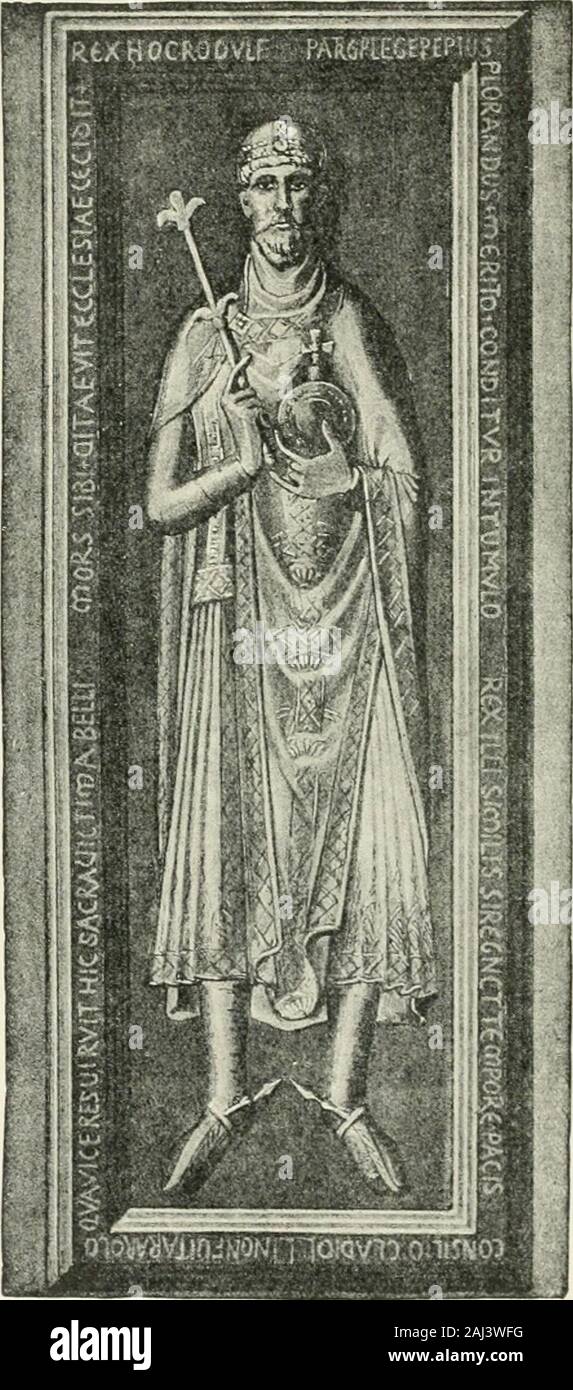A history of all nations from the earliest times; being a universal historical library . Saxons, and seemsto have gone so far as to hold out to them the idea of a separateSaxon kingdom under his son Henry. But even this did not satisfythis self-willed people. They insisted on the dissolution of theirconnection with the Salian house. But Henrys German enemies were now leaderless, and incapableof energetic action. Leaving, therefore, his home interests to becared for by Frederick of Hohenstaufen, Duke of Swabia, he hurriedsouth into Italy. There, too, the prospects were favorable. RobertGuiscard

Image details
Contributor:
The Reading Room / Alamy Stock PhotoImage ID:
2AJ3WFGFile size:
7.1 MB (476 KB Compressed download)Releases:
Model - no | Property - noDo I need a release?Dimensions:
1050 x 2380 px | 17.8 x 40.3 cm | 7 x 15.9 inches | 150dpiMore information:
This image is a public domain image, which means either that copyright has expired in the image or the copyright holder has waived their copyright. Alamy charges you a fee for access to the high resolution copy of the image.
This image could have imperfections as it’s either historical or reportage.
A history of all nations from the earliest times; being a universal historical library . Saxons, and seemsto have gone so far as to hold out to them the idea of a separateSaxon kingdom under his son Henry. But even this did not satisfythis self-willed people. They insisted on the dissolution of theirconnection with the Salian house. But Henrys German enemies were now leaderless, and incapableof energetic action. Leaving, therefore, his home interests to becared for by Frederick of Hohenstaufen, Duke of Swabia, he hurriedsouth into Italy. There, too, the prospects were favorable. RobertGuiscard, Duke of Apulia, was engrossed by his struggle with theByzantines, from whom he sought to wrest the Ionian Islands, andconsequently could do nothing to impede the advance of the Ger-man army on Rome. Matilda of Tuscany thus remained the pojiesonly stay, but she was not secure in her own domains. On Henrysappearance, Lucca, Pisa, Siena, and other cities turned to his sideand that of the anti-pope, who, in the spring of 1081, had been ac- 46 THE CONFLICT IN THE EMPIRE UNDER HENRY IV.. Fig. 3. — Bronze plate on the tomb of Kuilolf of Swabia.Merseburg. (From Heftuer.) Ill tlie cathedral at HENRY IV. BESIEGES ROME. 47 knowledged by the Lombard bishops at Pavia. Unimpeded, Henrycontinued his course southward, and at Whitsuntide stood beforeRome. But Gregory held out unflinchingly, and liis people stoodby him. For an assault on the city Henry was not strong enough, and so at the end of June he withdrew. This raised the courage ofhis enemies in Germany, who found a successor to the anti-kingRudolf in Count Hermann of Salm, a man of energy, whose posses-sions lay in Lorraine and Franconia. Hermann, after defeating theSwabian duke in August, and unsuccessfully besieging Augsburg, was crowned, towaids the end of the year, in Goslar. He was es-pecially strong in Saxony, but, finding the conflict hopeless, abdicatedhis claims in 1088. After a period spent by both sides in gaining re-enforc